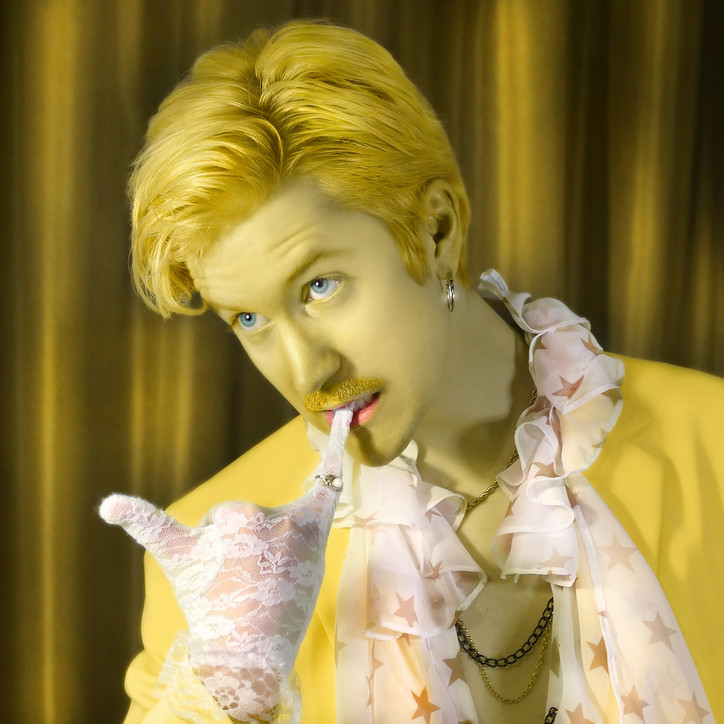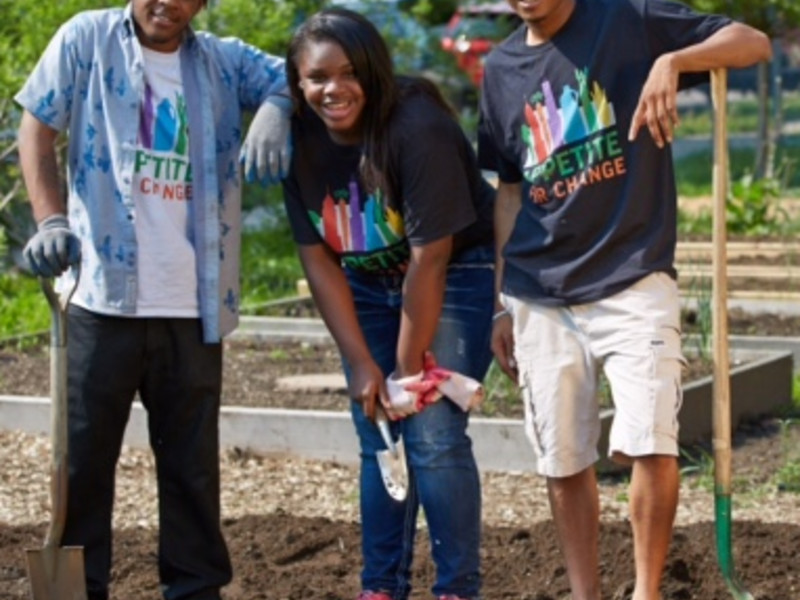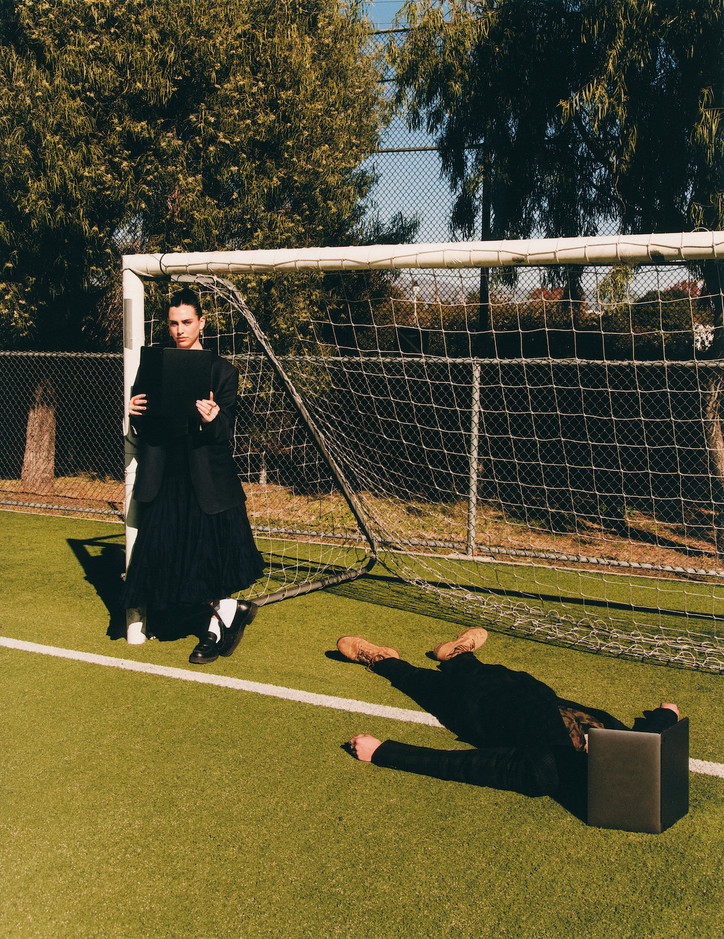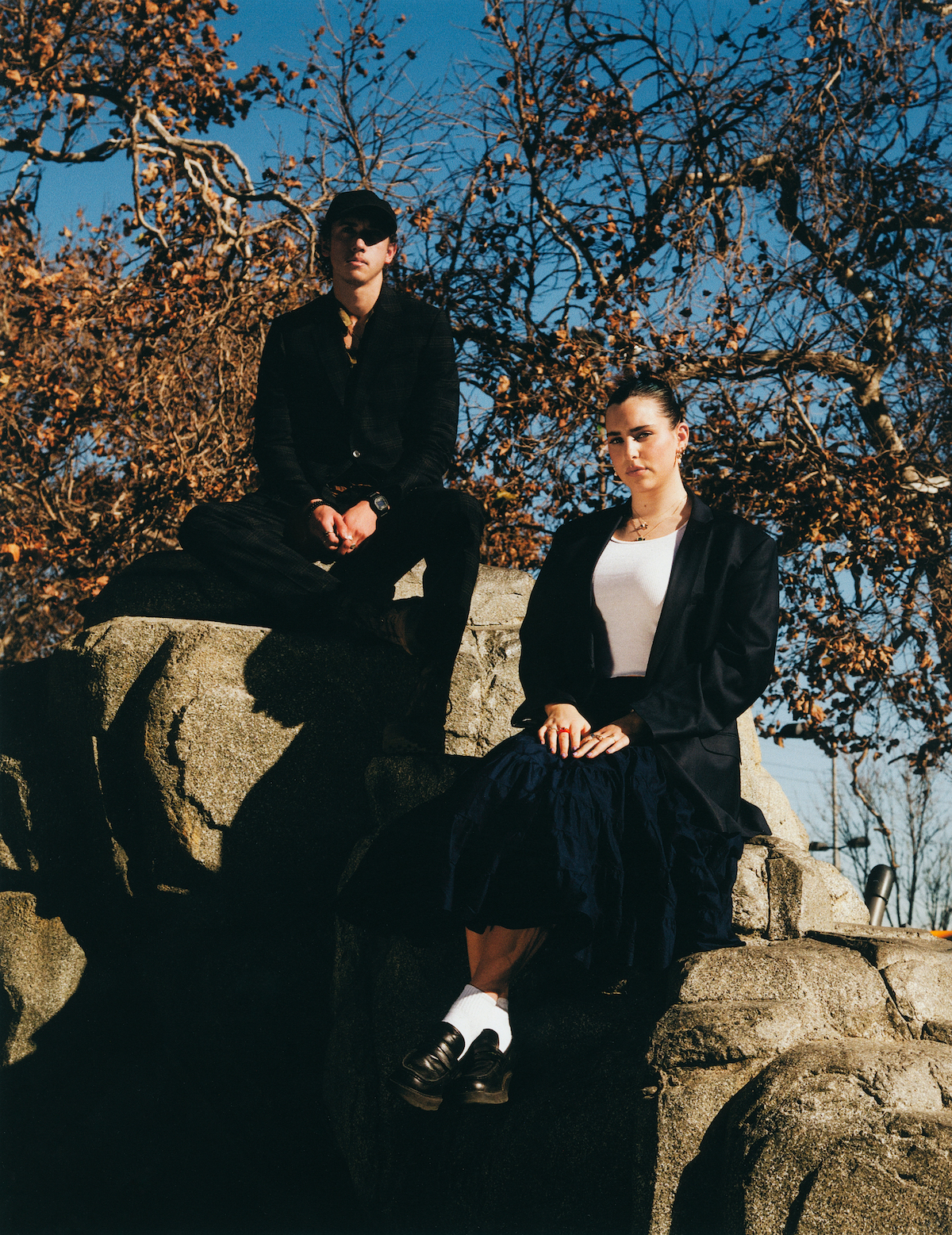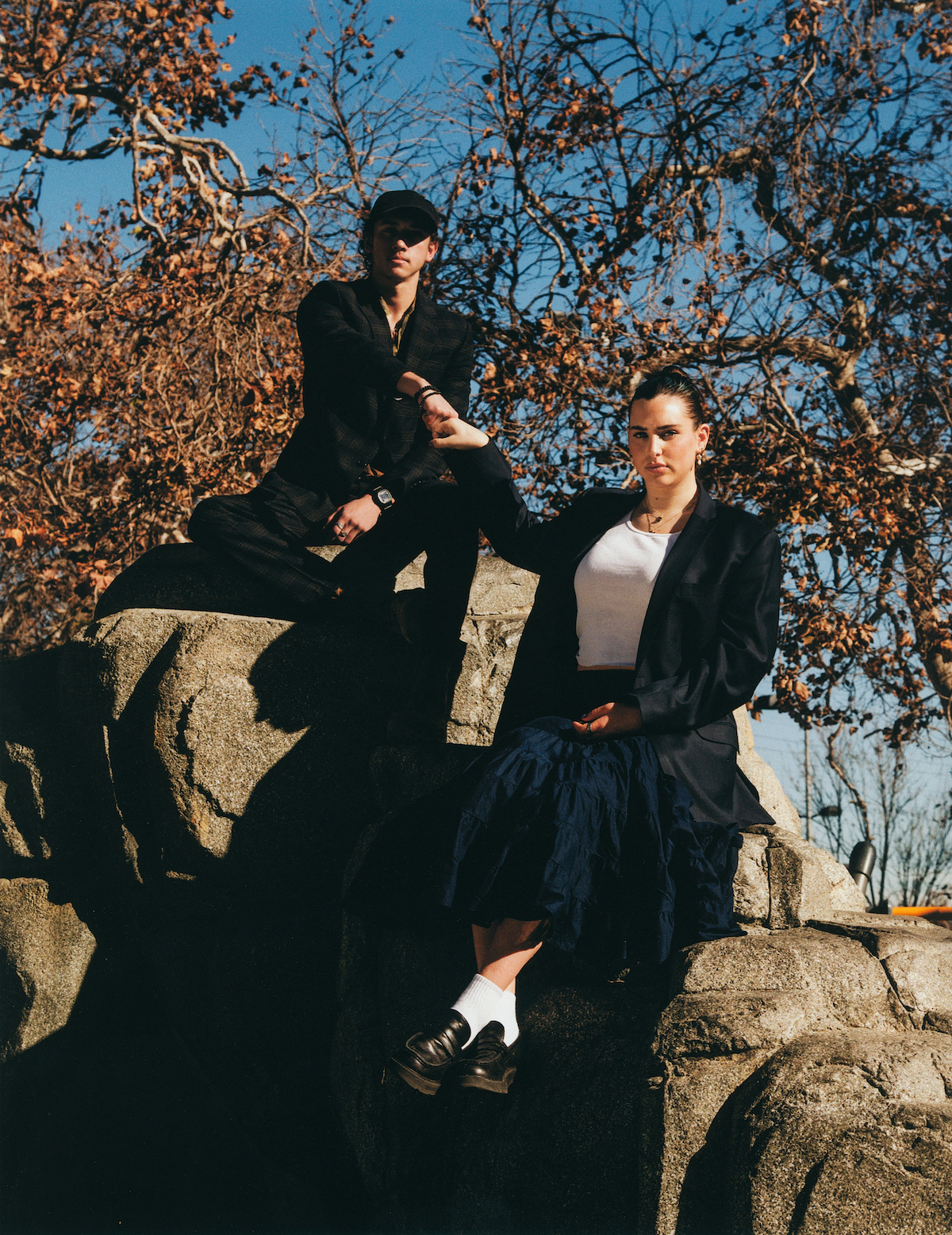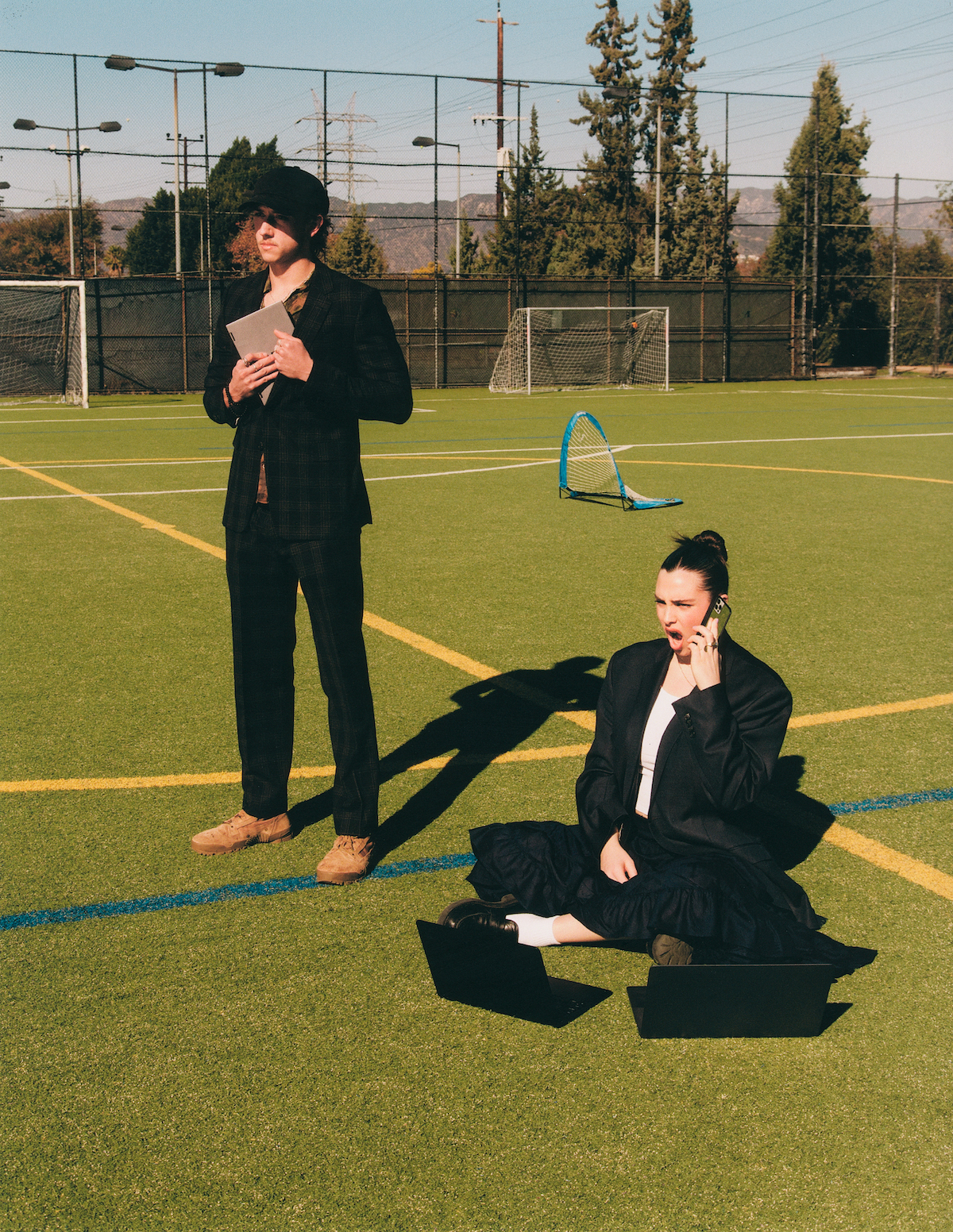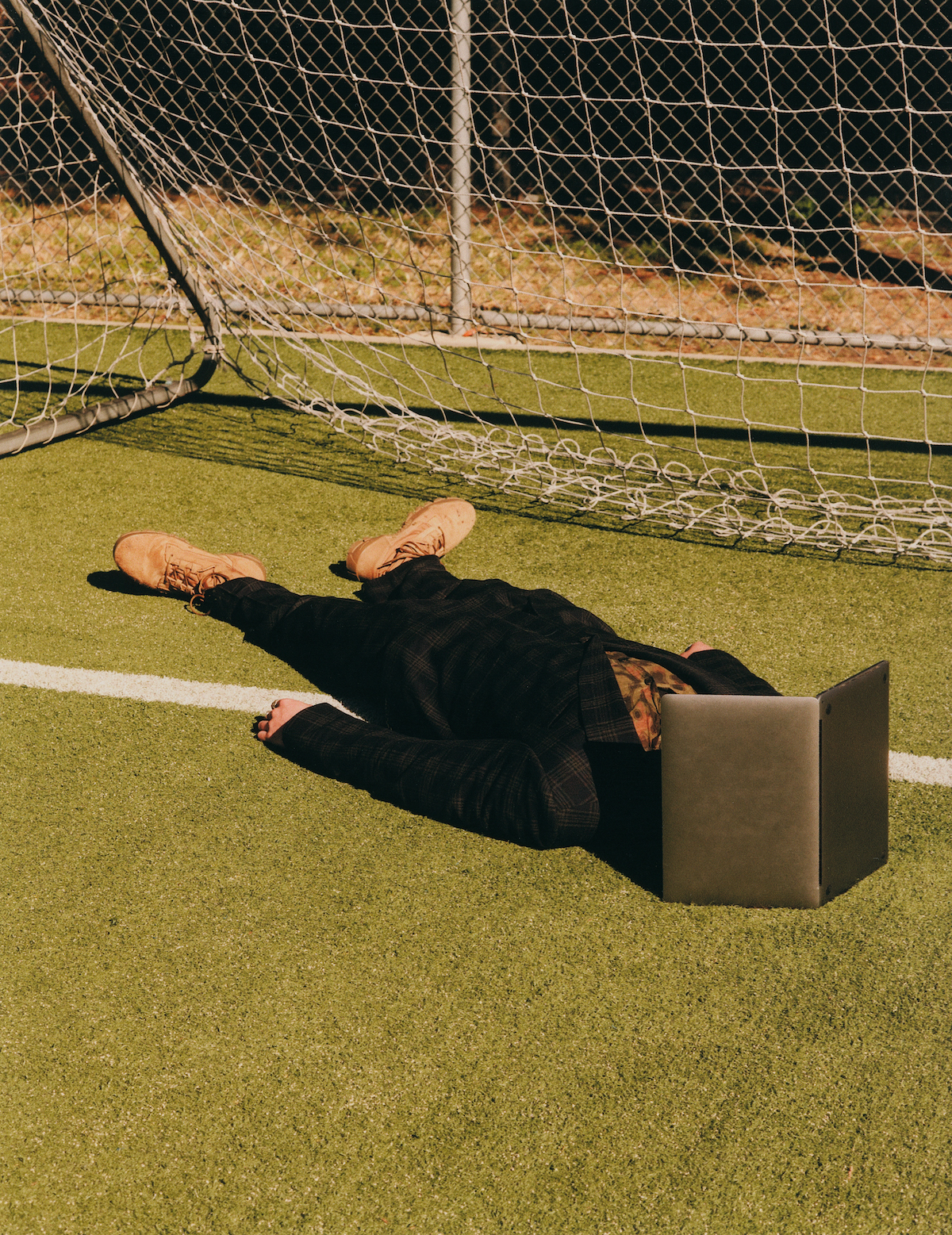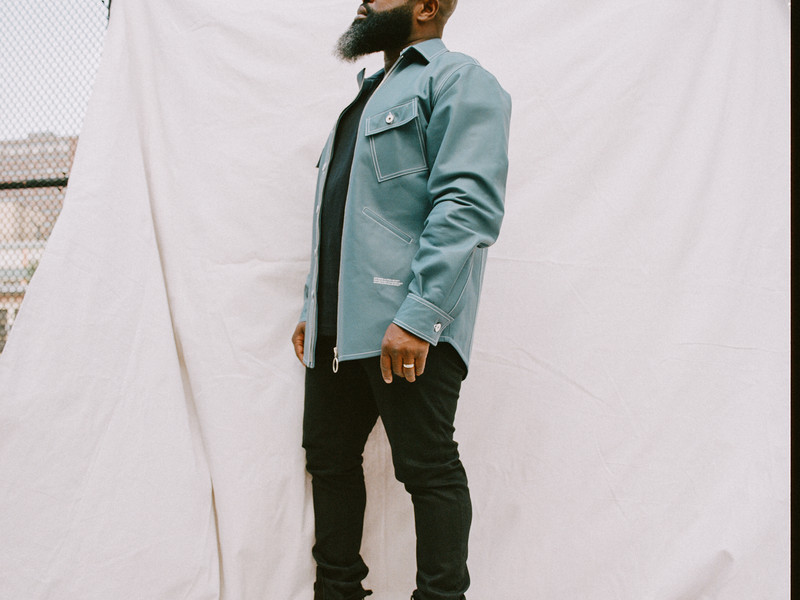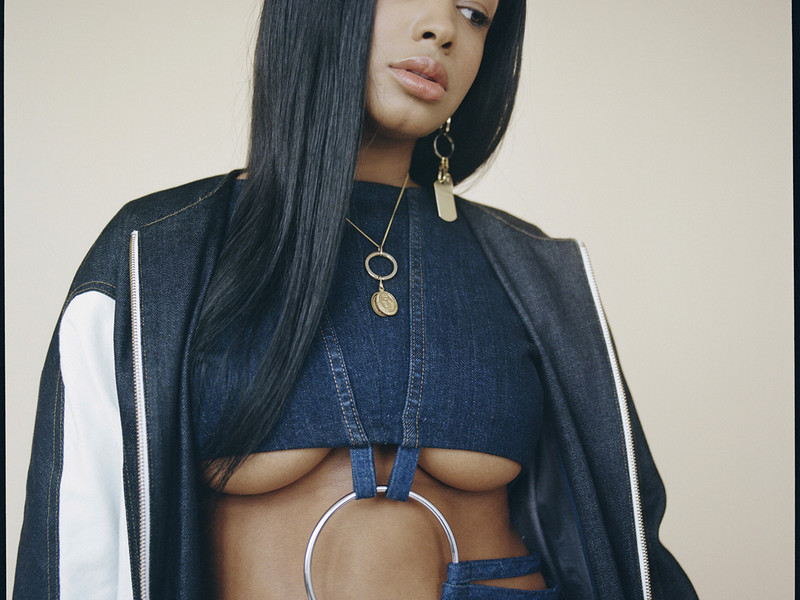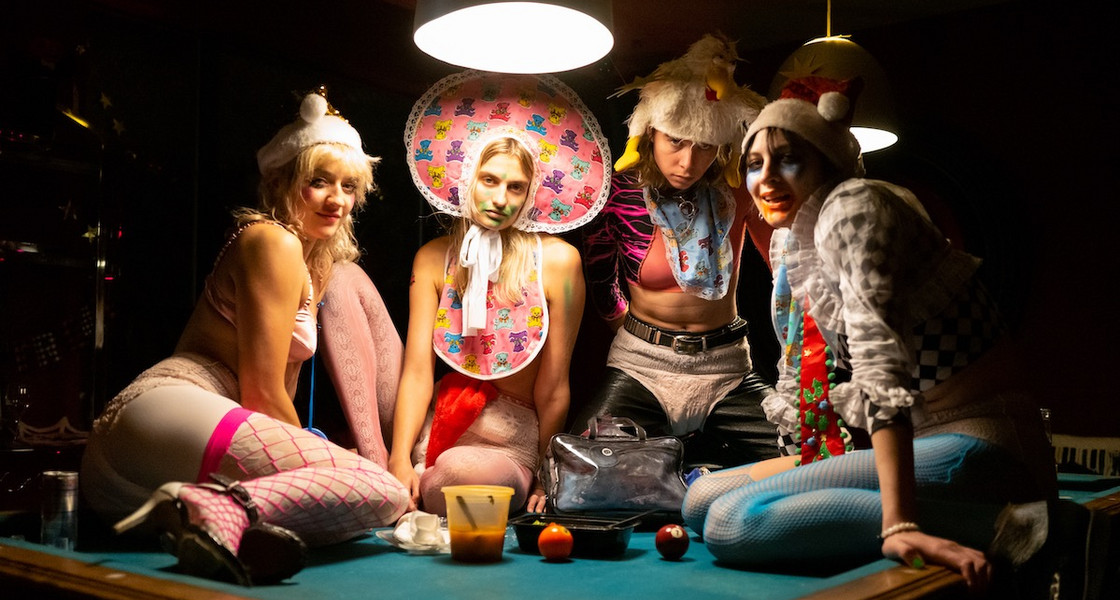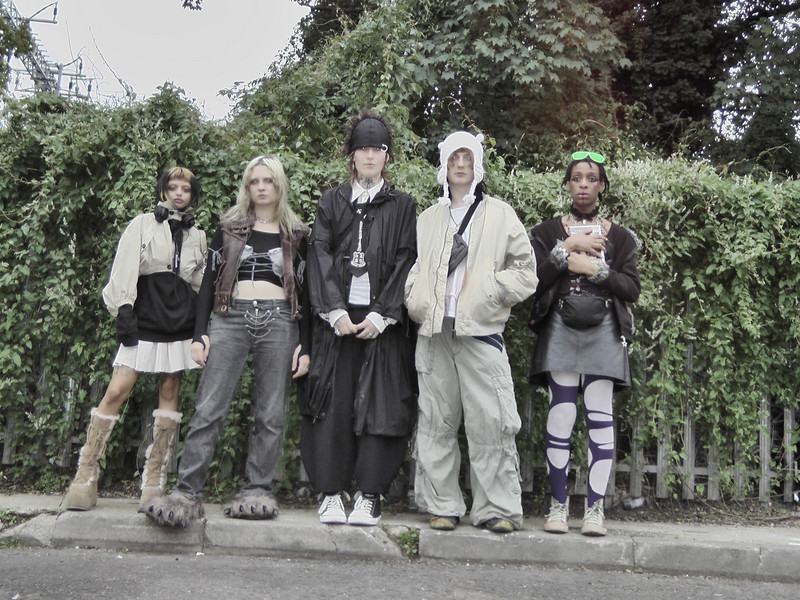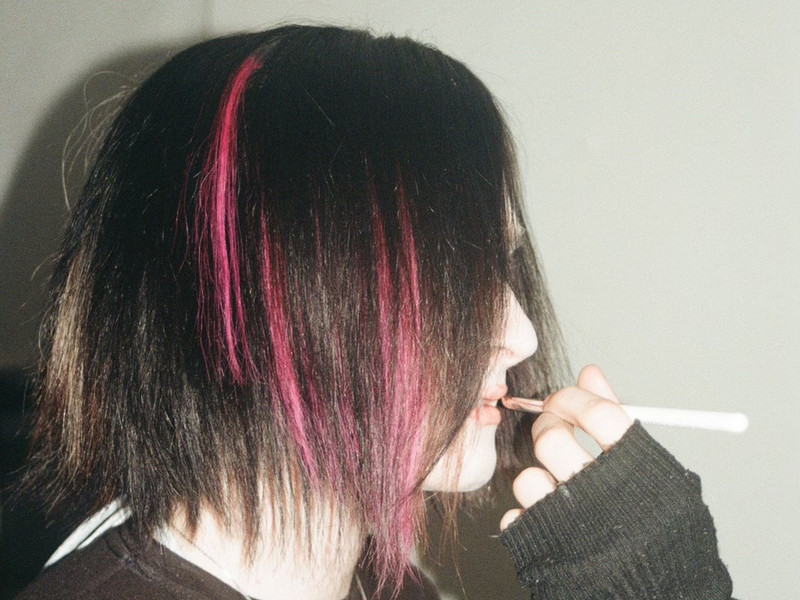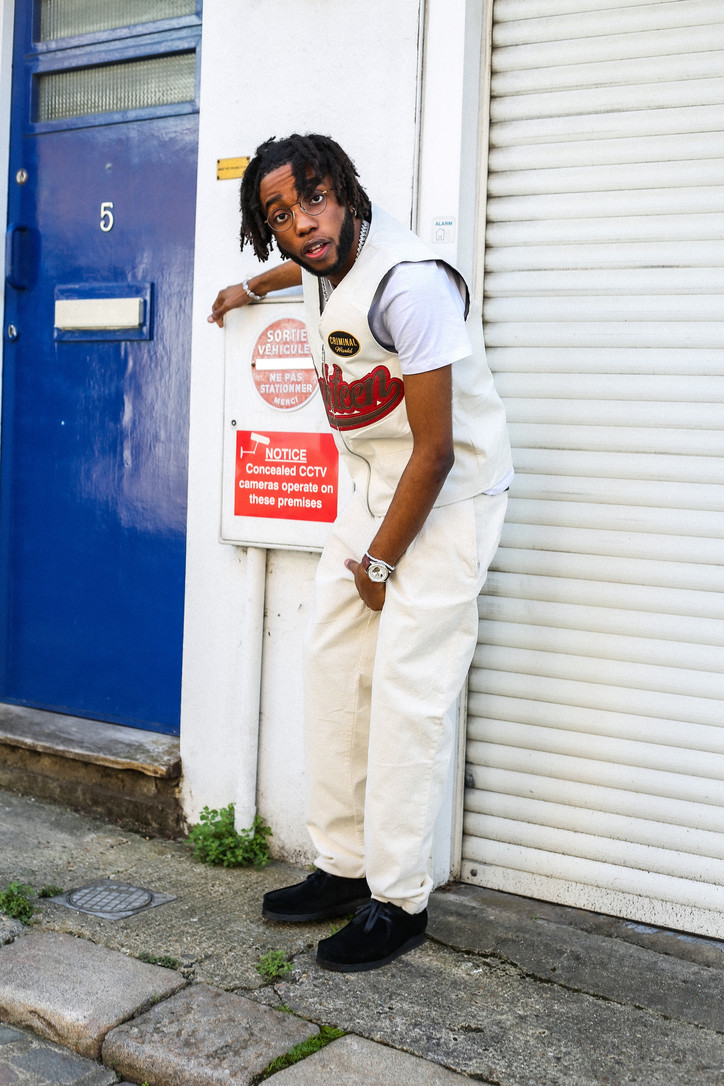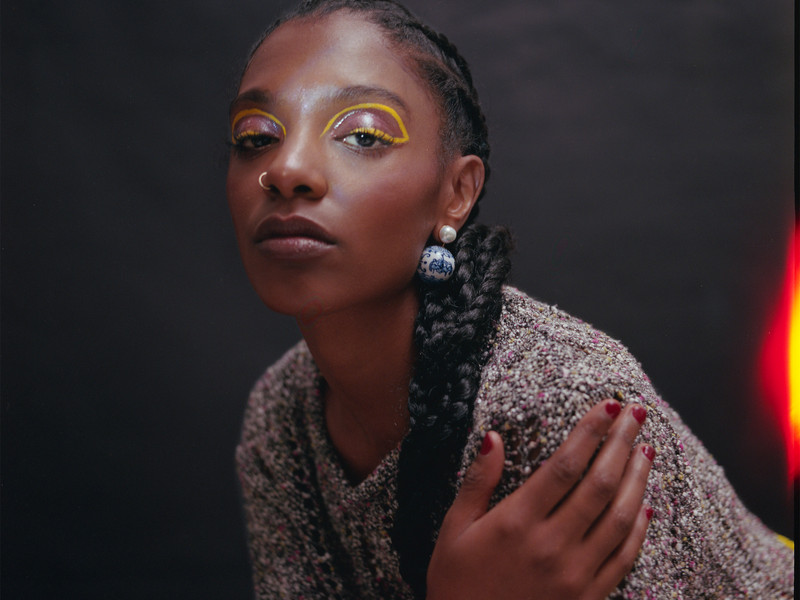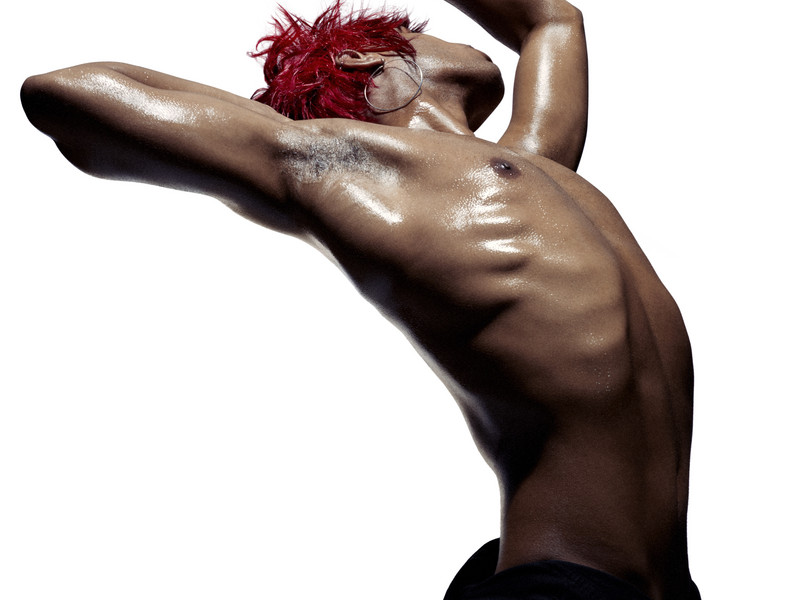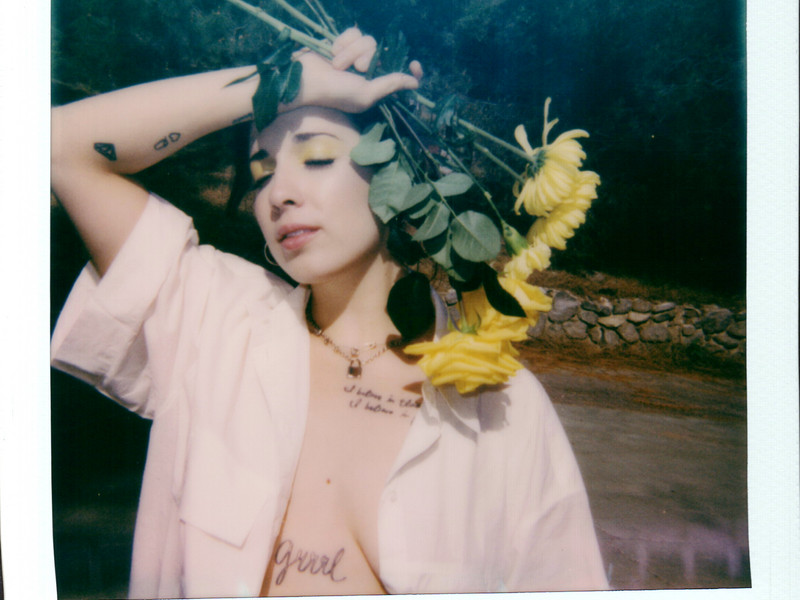Why’d you choose to make it a music festival?
EK一 It's a recognized notion that the entertainment industry dictates so much about values, and ideals, and the things that we cultivate as a collective, and what we look up to. The current “charity festivals” that do exist now can feel a bit outdated, and sometimes commercial. We wanted to make something that felt extremely case-specific. The goal was to create a festival tour, so to speak, where we would be here for different cities in their communities, and here for LA is the first one. We can move this to be here for any place as it travels around. So, maybe HERE FOR LONDON or HERE FOR LISBON, etc. But the goal is always to bring together and support local artists, businesses, and organizations in that area wherever we go, and just make it a very personal and tight-knit event for each area. But I'll say that this is also the subsequent challenge combining the music industry with the desire to create tangible change in peoples’ lives. The music industry, as I've seen it this far, when you're working with the machine, doesn't feel like it has much of a heart.
SB一 And as cheesy as it sounds, music is a universal language. When thinking about something that we could bring to all different places of the world, music is something that most people can connect to in some way. It's a way to make giving back, and a way to want to do good, and want to be involved in this community fun. There's so many different types of artists. There's artists that are representative of every culture, every genre, every race, religion, ethnicity. It's a way to put people on a stage that all have completely different perspectives and point of views. I think that’s one thing that Ethan and I have tried to curate with the people and the artists. We want everyone who we think is doing good, or cares, but Here doesn't have an agenda beyond that. We want to support other people in what they believe in and give room for everybody to speak what's on their mind and have tough conversations.
What has it been like getting this together?
EK一 The festival is a two part event. We actually are doing a workshop group where we're basically hosting the three organizations that we're supporting, and we're bringing a couple of people around who we feel are really impactful in LA in the spaces of education, homelessness and housing sustainability. We're hosting a panel discussion, but also breaking out the audience into workshop groups to try and solve specific problems that those organizations are presenting. And then Here, as an organization, wants to give out grants based off of the ticket sales and donations to these workshop groups so they can keep on supporting the organizations after the festival as well. As for our roles, Stella and I are overseeing all of it, but I'm a little bit more catered towards the workshops, and Stella’s a little bit more catered towards overseeing the artists in production and hospitality.
SB一 Ethan and I met in June, and since then, we usually are with each other every day. I haven't met too many people in my life that I think have worked similarly to me, or have the same entrepreneurial aspirations as I do. Through this process, Ethan and I have learned so much together. We've made mistakes. We've had to have really tough conversations with people. I've cried a few times. It's been some of the most rewarding and also hardest months of my life. It's definitely been a process where Ethan and I have have been overwhelmed at times - have not slept at times - but it's really rewarding. We're talking to people that I never even thought I'd be able to get on a Zoom call with. As a writer in the industry, or just as a student, I never thought I would at this point be on calls with certain record label executives or certain people getting to communicate with them. Ethan's usually the first person I talk to when I wake up and the last person I talk to when I go to sleep.
What are the three nonprofits that you're working with, and why’d you choose each of them?
EK一 We wanted to drive on three issues that we knew were pretty big issues in the area and were applicable to a lot of people. That came to sustainability, education, and homelessness. These are three pillars we feel are issues that LA in particular is facing and thinking about very heavily. We went with artworkxLA because we've actually done a previous event with them before, and we both have backgrounds in creative arts. We figured it would be really interesting to engage with something that kind of combines arts education with the traditional education world.
SB一 Specifically to kids that are at risk of dropping out of high school.
EK一 They really get their hands dirty when it comes to like giving their students actual plans of action for how they can integrate post-school into careers that involve the arts. Then Homeless Health Care Los Angeles is a pretty unique organization. They have a little bit of an unconventional approach to how they work - both in their in their creative direction, and the narrative that they that they try to present about the misconceptions around people who are homeless. One of the things we really liked about them was they havean approach of meeting people where they're at as opposed to cutting someone off. They have a completely holistic approach to it too. They offer housing and a lot of programs. It doesn't feel like a machine. It's a very understanding and compassionate approach to working with the homeless community in Los Angeles.
SB一 I think if you make people feel more human, then they're more receptive to help and getting back on their feet. So, HHCLA is more about the path to a better life, rather than just placing people somewhere where they're not ready to be yet.
EK一 L.A. Works we originally got into because they are essentially an umbrella organization for mobilizing volunteers towards different initiatives and organizations around L.A. They mobilize a lot of different people towards different organizations and move where the changes are going. They were really keen on collaborating on a climate justice initiative, and that spoke to me very heavily. We thought that was really interesting and kind of innovative when it comes to working in that space.
